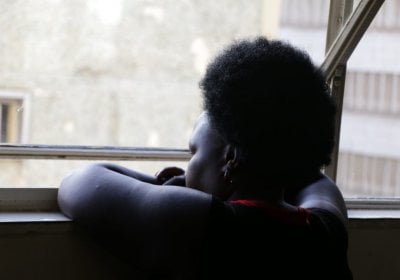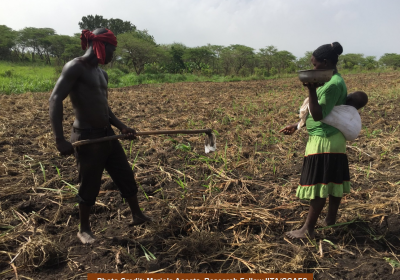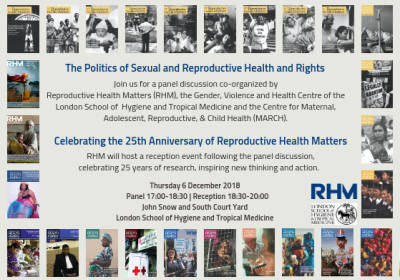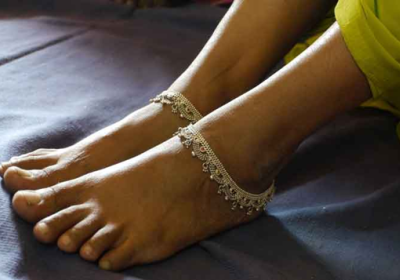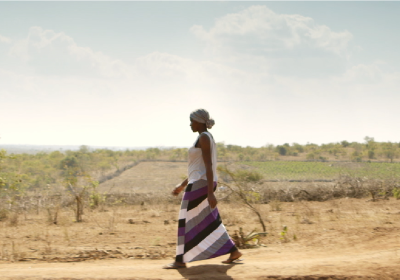Introduction into research on gender-based violence at LSHTM
This 16 Days introductory event is targeted towards LSHTM students and will give an overview of what gender-based violence is and why it is important to public health, the history of the Gender Violence and Health Centre (GVHC) at LSHTM, and current research projects out of GVHC.
The last half-hour will be a student networking and MSc project event where students will have an opportunity to network with GVHC researchers and project ideas will be proposed.
Programme
- 12.30 – 12.45: What is gender-based violence?
-
Speakers: Dr Heidi Stöckl; Director, GVHC; Professor in Social Epidemiology & Dr Ana Maria Buller; Deputy Director, GVHC; Associate Professor in Social Science
- 12.45 – 13.00: History of the Gender Violence & Health Centre at LSHTM
-
Screening of video featuring interviews with:
- Prof Charlotte Watts, Founding Director, GVHC; Chief Scientific Advisor, DFID
- Prof Cathy Zimmerman Founding Member, GVHC; Professor in Migration, Violence and Exploitation
- Dr Manuela Colombini, Assistant Professor in Health Systems and Policy
- Dr Lori Heise, Former Director, GVHC; Professor, Johns Hopkins University
- Dr Heidi Stöckl, Director, GVHC; Professor in Social Epidemiology
- Dr Ana Maria Buller, Deputy Director, GVHC; Associate Professor in Social Science
- 13.00 – 13.30: Presentation of current research projects: Pecha Kuchas
-
Cash transfers & IPV, Transactional Sex, Economic Empowerment and Sexual Harassment
Speaker: Dr Meghna Ranganathan, Assistant Professor
The role of infidelity and romantic jealousy in intimate partner violence against women: A systematic review
Speaker: Marjorie Pichon; Research Assistant
This presentation will focus on the less studied “relational” level of the socio-ecological model of intimate partner violence (IPV), taking a close look at the mechanisms and pathways of real, suspected, or anticipated infidelity and romantic jealous (RJ) on IPV against women. Presenting findings from a recently published systematic review, the three overarching mechanisms and six identified pathways provide support for prominent theories in the field related to patriarchal culture, threatened masculinities and femininities, and a lack of emotional regulation and conflict resolution skills. These findings have implications for research and measurement of infidelity and romantic jealousy, as well as policy and programming aimed at decreasing IPV against women.
Co-production in the MAISHA trial: A social empowerment and microfinance scheme in Mwanza, Tanzania
Speaker: Mark Marchant, Research Fellow
Preventing Violence Against Children in Schools (PVACS): a cluster-randomised controlled trial of the EmpaTeach intervention to reduce violence from teachers to students in Nyarugusu Refugee Camp
Speaker: Camilla Fabbri, Research Fellow
School-based violence prevention interventions offer enormous potential to reduce children’s experience of violence perpetrated by teachers, but few have been rigorously evaluated globally and none in humanitarian settings. We conducted a cluster randomised controlled trial to test whether the EmpaTeach intervention implemented by the International Rescue Committee could reduce physical violence from teachers to students in Nyarugusu Refugee Camp, Tanzania. The intervention is a behaviourally-informed, self-guided teacher training intervention designed to reduce and prevent teachers’ use of corporal punishment in the classroom. The content of the intervention is focused on empathy-building exercises and on group-work to practice self-regulation techniques, positive disciplinary methods and classroom management strategies.
Migration, Human Trafficking and Labour Exploitation (pre-recorded)
Speakers: Prof Cathy Zimmerman, Professor in Migration, Violence and Exploitation, Nicola Pocock, Assistant Professor & Alys McAlpine, Research Degree Student
Globally there are an estimated 164 million cross-border migrant workers, with millions more internal labour migrants. Approximately 25 million people are estimated to be in forced labour, while among 218 million child labourers, 73 million are in hazardous work. Our team’s work focuses on the global health challenges among these populations.
In this talk, we discuss several current projects related to migration and exploitation, including: (1) a five-year evaluation of an anti-trafficking intervention in Nepal, India and Bangladesh; (2) the role of migration intermediaries at the Thai-Myanmar border, based on data with Burmese labour recruiters and migrants: and (3) improving measurement of child labour occupational risks and child domestic work in households surveys.
- 13.30 – 14.00: Student networking and MSc project event
-
We conclude with ideas for future research and student MSc projects. Students will have the opportunity to network with GVHC researchers.
Please note that the time listed is Greenwich Mean Time (GMT)
Admission
Contact
